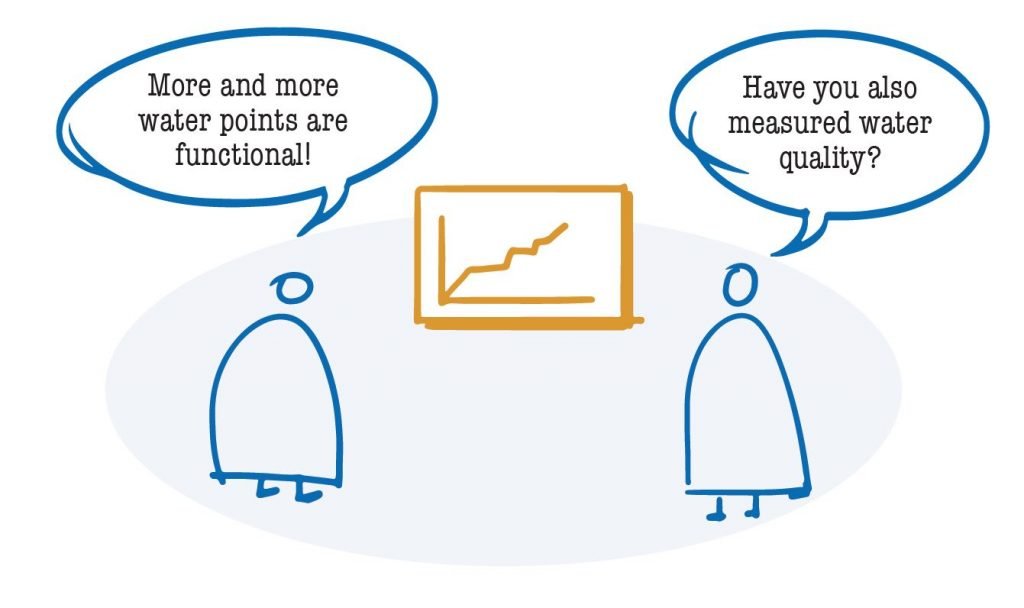This blog is based on the fact sheet on Actionable Guidance for Local Governments: Harnessing Water Point Data for Improved Water Services
Local governments use water point data to determine the status of water services, make district investment plans, support communities, and advocate for district programs. They are a tool for guiding and coordinating partners working in an area and acquiring the financing required for sustainable water services. Local governments may work with partners to overcome barriers such as inadequate human resources and logistics for data collection and analysis.
Previously, we wrote blogs about universal lessons for improving water point monitoring and guidance for national governments. This blog highlights the most important lessons for local governments. The recommendations for local government apply equally to other service authorities involved in planning, coordination, regulation, and oversight of water services and technical assistance to water service providers and communities.
Recommendation 1: Require the use of national and district standards to monitor results
Require NGOs and the private sector to collect water point data meeting national standards, to monitor results, and to share their data with the district and other stakeholders. They should have to explain the results of their water point monitoring during coordination meetings. Provide feedback to the national government when there are challenges using data.

Recommendation 2: Use water point data to tell the story of water services
Use water point data to tell the story of water services to politicians, financiers, and users to sustain interest in achieving universal access to basic water services. Evidence-based investment plans using water point data can facilitate dialogue between water engineers, planners, and politicians on how to improve services.
